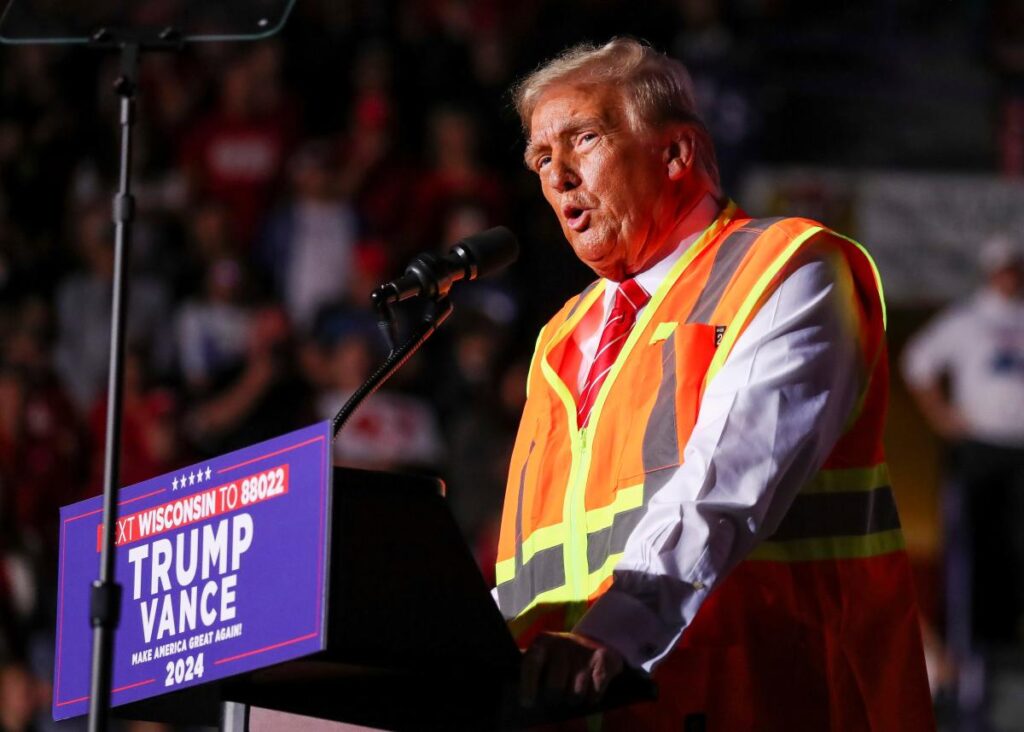As Election Day approaches, the political landscape reveals significant tensions within the Republican Party, particularly regarding Donald Trump’s candidacy. Despite Trump showing a rise in some national polls, a notable faction of high-profile Republicans has openly refused to support him, with over 200 key figures rejecting his leadership. This division has led some Republicans to back his opponent, Kamala Harris, at campaign events in crucial swing states like Pennsylvania. This situation raises important questions about the future identity of the Republican Party and how it will navigate the impending election and its aftermath.
High-profile endorsements of Harris by former members of Trump’s cabinet further complicate the narrative surrounding the former president. Indeed, Trump is criticized as “dangerous” and “unable to be trusted with power” in campaign ads featuring these former officials. Among those refusing to support Trump are influential figures such as former President George W. Bush, former Vice President Mike Pence, and ex-Cabinet members like John Bolton and Dan Coats, highlighting a significant rift within the GOP. Pence notably cites personal threats he faced during the January 6 insurrection as a reason for his opposition and decision to run against Trump in the primaries. The reluctance of prominent Republicans to rally behind Trump underscores a growing discontent within the party.
The opposition to Trump is not limited to former officials; significant current congressional figures also oppose his candidacy. Senators like Mitt Romney, Susan Collins, and Lisa Murkowski have chosen to support other candidates in the Republican primaries. Their stance reflects a broader rejection of Trump’s brand of politics, as evidenced by the presence of several Republican representatives who lean away from Trump’s controversial rhetoric. In Texas, where Trump has traditionally held strong support, some former Congress members like Tom DeLay and Will Hurd have indicated their disapproval, signifying a schism among Texas Republicans as well.
This ideological divide can be traced back to the transformation of the Republican Party during Trump’s tenure. A study by 538/ABC News revealed that the number of moderate Republicans in Congress saw a marked decline between 2017 and 2020. This shift was attributed to heightened polarization and the emergence of more hardline candidates who unseated moderate incumbents, reshaping the party’s direction. The findings suggest that many incumbents who did not align closely with Trump’s more zealous agenda found themselves vulnerable in elections. Consequently, the Republican Party is grappling with accusations of extremism and racism while Democrats face their own challenges, seeking to maintain traction among traditional voter bases.
As candidates aligned with the “MAGA” wing of the Republican Party gain prominence, the electoral landscape becomes increasingly risky for moderate Republicans. A report by the Brookings Institute indicates that races are increasingly witnessing “MAGA/Trump conservatives” winning primaries by substantial margins over their moderate counterparts. This trend raises important implications for the future of both moderate Democrats and Republicans, suggesting that both factions may struggle to maintain influence in an increasingly polarized climate. The outcomes of the elections on November 8 will be pivotal in determining whether these emerging alignments hold sway in the coming years.
In conclusion, the internal discord within the Republican Party, highlighted by the refusal of many prominent figures to support Trump, poses vital questions for the party’s future. The backing of Harris by several former Republicans indicates a potential realignment in American politics, while the persistence of hardline Trumpism is driving away moderates. As Election Day approaches, the results will not only shape the trajectory of the GOP but also provide insight into the evolving dynamics of American political identity, as voters grapple with the implications of their choices in this high-stakes election. The consequences are poised to resonate far beyond November, influencing party structures and ideologies for years to come.

